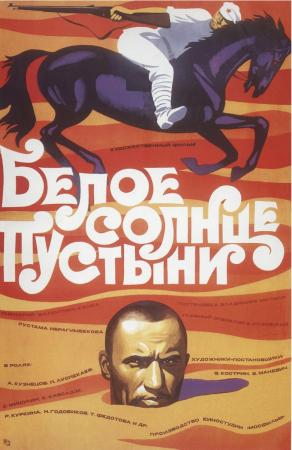_FILMOTECA HAWKMENBLUES Vladimir Motyl.mht
-
Alex Nicolaou (1) -
Anne Charlotte Robertson (1) -
Benjamin Rocher (1) -
Blaine Cade (1) -
Brett Pierce (1) -
Burr Steers (1) -
Carl Bessai (1) -
Casey Walker (1) -
Claude Barras (1) -
Corbin Bernsen (1) -
Dan O'Bannon (1) -
David Gebroe (1) -
David Irving (1) -
Glasgow Phillips (1) -
Gregg Bishop (1) -
Henry Hobson (1) -
Howard McCain (1) -
James Glenn Dudelson (1) -
Jason Lei Howden (1) -
Jesse T. Cook (1) -
John Geddes (1) -
Jordan Rubin (1) -
Julián Lara (1) -
Justin Benson (1) -
Ken Wiederhorn (1) -
Kevin Gates (1) -
Kiah Roache-Turner (1) -
Lee Su-jin (1) -
Logan McMillan (1) -
Mark Goldblatt (1) -
Murat Emir Eren (1) -
Naoyuki Tomomatsu (1) -
Neill Blomkamp (1) -
Nikolai Pigarev (1) -
Pablo Parés (1) -
Ramón Luque (1) -
Richard Kletter (1) -
Robbie Pickering (1) -
Rodrigo Aragão (1) -
Rolf Peter Kahl (1) -
Sakichi Sato (1) -
Steven C. Miller (1) -
Tamara Kotevska (1) -
Tatjana Turanskyj (1) -
Tobias Nölle (1) -
Tor Ramsey (1) -
Wolf Wolff (1) -
Yared Zeleke (1) -
Yorgos Noussias (1) -
Zachary Ramelan (1)
Vladimir Motyl was born in Lepiel, Belarus. His father was a Polish émigré, who was arrested in 1930 and sent to Solovki and died there the following year. Many of his other relatives suffered similar treatment. Vladimir and his mother were exiled to the Northern Urals, where he became fascinated in theatre and cinema, and later graduated from the Sverdlovsk Theatrical Institute. For about 10 years he worked in various theatres in the Urals and Siberia and eventually became chief director of Sverdlovsk Young Spectator's Theatre.
He decided to start afresh in cinema, despite having no technical qualifications. Eventually he directed his first film, Children of Pamirs (1963) (Detyi Pamira/Дети Памира) in Tajikistan. This work was met with public success, as well as earning him the State Prize of Tajik SSR (1964), and the title of honorary citizen of Dushanbe (1977).
His next film Zhenya, Zhenechka, and "Katyusha" (1967) (Женя, Женечка и "Катюша"), a romantic comedy/drama set in 1944, was warmly accepted by the public as well, but earned the displeasure of the Soviet agitprop for "disrespectful" treatment of the second world war theme, and the director fell into disfavor.
Nevertheless, he was invited to direct a film which was to become one of the most popular Soviet cult films, the "Red Western" (or technically, "Ostern") White Sun of the Desert. Notably, this film has a strong theme about exile, as its protagonist, Sukhov finds himself waylaid in Central Asia when trying to return home.
For his work, Motyl received numerous awards. wiki
Director (11 credits)
2010 Bagrovyy tsvet snegopada
1996 Nesut menya koni
1991 Rasstanemsya - poka khoroshie
1987 Veliky Vanya (TV Movie)
1987 Zhil-byl Shishlov (TV Movie)
1984 Neveroyatnoye pari, ili istinnoye proisshestviye, blagopoluchno zavershivsheyesya sto let nazad (TV Movie)
1980 Les
1975 Zvezda plenitelnogo schastya
1970 El sol blanco del desierto (Beloe solntse pustyni)
1967 Zhenya, Zhenechka i 'Katyusha'
1963 Deti Pamira
IMDB
Enlaces completados:
OK Zvezda plenitelnogo schastya (Vladimir Motyl, 1975)
OK Beloe solnce pustyni (Vladimir Motyl, 1970)
 El sol blanco del desierto
Ficha Técnica:
Título original: Beloe solnce pustyni
Año: 1970
País: URSS
Género: Aventura. Historico. Bélico. Acción.
Dirección: Vladimir Motyl
Guión: Valentin Ezhov, Rustam Ibragimbekov, Mark Zakharov
Duración: 85 min
Reparto: Anatoli Kuznetsov, Spartak Mishulin, Kakhi Kavsadze, Pavel Luspekayev, Nikolai Godovikov, Tatyana Tkach, Galina Luchai, Lidiya Smirnova, Aleksandr Sokolov, Tatyana Kuzmina
Datos del archivo:
Idioma: Ruso con subtítulos en español (srt)
Calidad: DVDRip gracias a purita
Resolución: 720x544
Formato: AVI
Tamaño: 1,45 GB
Sinopsis: La acción se ambienta en la costa este del mar Caspio, la actual Turkmenistán, donde el Fyodor Sukhov, soldado del Ejército Rojo, ha luchado durante la guerra civil durante muchos años. Tras ser hospitalizado y licenciado, durante el regreso a su hogar junto a esposa, se ve atrapado en el desierto en medio de una pelea entre una unidad de caballería del Ejército Rojo y rebeldes Basmachi. Sukhov termina custodiando el harem del caudillo Bashmachi, Abdullah, cuando sus camaradas del ejército lo persiguen. La tarea resulta ser peor de lo imaginado, y entre los ataques de los Basmachis y los ofrecimientos del harem, Sukhov debe lidiar con Vereshchagin, un borracho antiguo oficial imperial ruso que todavía cuida el puesto fronterizo comercian y el museo donde se cobijan... (FILMAFFINITY)
El sol blanco del desierto
Ficha Técnica:
Título original: Beloe solnce pustyni
Año: 1970
País: URSS
Género: Aventura. Historico. Bélico. Acción.
Dirección: Vladimir Motyl
Guión: Valentin Ezhov, Rustam Ibragimbekov, Mark Zakharov
Duración: 85 min
Reparto: Anatoli Kuznetsov, Spartak Mishulin, Kakhi Kavsadze, Pavel Luspekayev, Nikolai Godovikov, Tatyana Tkach, Galina Luchai, Lidiya Smirnova, Aleksandr Sokolov, Tatyana Kuzmina
Datos del archivo:
Idioma: Ruso con subtítulos en español (srt)
Calidad: DVDRip gracias a purita
Resolución: 720x544
Formato: AVI
Tamaño: 1,45 GB
Sinopsis: La acción se ambienta en la costa este del mar Caspio, la actual Turkmenistán, donde el Fyodor Sukhov, soldado del Ejército Rojo, ha luchado durante la guerra civil durante muchos años. Tras ser hospitalizado y licenciado, durante el regreso a su hogar junto a esposa, se ve atrapado en el desierto en medio de una pelea entre una unidad de caballería del Ejército Rojo y rebeldes Basmachi. Sukhov termina custodiando el harem del caudillo Bashmachi, Abdullah, cuando sus camaradas del ejército lo persiguen. La tarea resulta ser peor de lo imaginado, y entre los ataques de los Basmachis y los ofrecimientos del harem, Sukhov debe lidiar con Vereshchagin, un borracho antiguo oficial imperial ruso que todavía cuida el puesto fronterizo comercian y el museo donde se cobijan... (FILMAFFINITY)



 Pobierz
Pobierz
